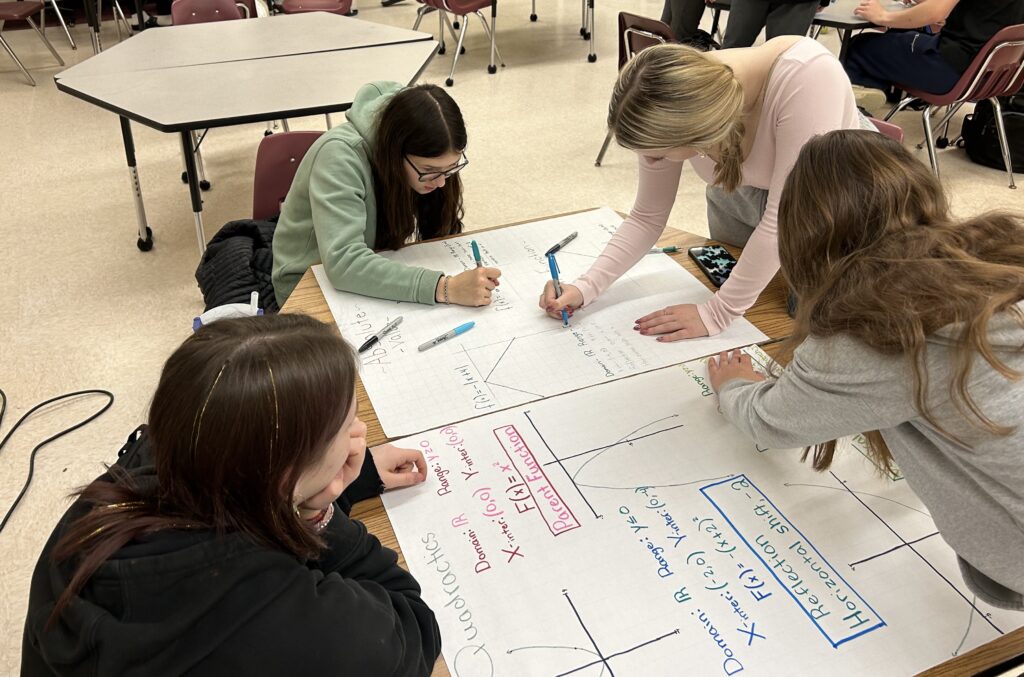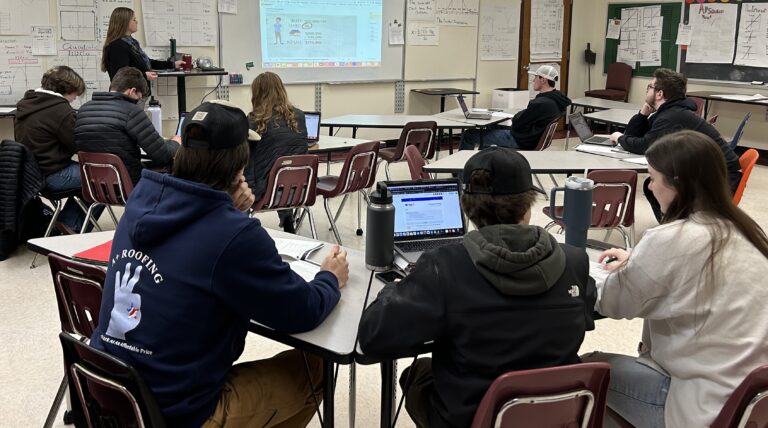Summer 2025 Course Information
Teaching Moves
Bite-sized Techniques to Transform Your Classroom
July 7 - August 1, 2025
Online, with four synchronous sessions
Instructors: Mike Blouin, M.S. and Jensen Welch, Ed.D
Course Overview
Small shifts can make an enormous difference. This course centers on small “teaching moves” that middle and high school teachers can use to make their jobs more efficient while better supporting their students. We’ll focus primarily on the greatest challenges teachers face: classroom management, work-life balance, designing engaging and well scaffolded lessons, and assessing what students know.
This course is not a general theory course. Instead, we will learn and practice specific, actionable techniques used by experienced educators. Participants will come away with new tools they can use immediately in their classrooms.
Throughout the course, participants will have the opportunity to talk through challenges and solutions with a community of other educators. Upon completion, they will walk away with new skills, connections, and a robust plan to integrate what they have learned into their own classrooms.
Your instructors, Jensen Welch and Mike Blouin are both passionate and experienced teachers and mentors. Learn more about us here.
This course can be taken on its own ($760), or for three graduate-level credits through Vermont State University ($1195). Scholarships are available for individuals; please note in your registration if you would like to learn more about that option.
You can see the full course syllabus here.

Course Goals and Objectives
Course Goals:
Teachers will:
- Create meaningful relationships with other early career teachers; share challenges, successes, advice, and support with one another.
- Build competence and confidence in actionable, evidence-based instructional and assessment techniques designed to support all students.
- Develop a detailed vision of how they will integrate what they’ve learned into their lessons in the upcoming school year.
Course Objectives:
By the end of the course, participants will be able to:
- Uncover (or refresh) why they teach and what sustains them in their day-to-day experience in the classroom. (maps to goal #1)
- Share successes, challenges, and aspirations with fellow educators while exchanging ideas and strategies in a supportive community of practice. (goal #1)
- Confidently (re)design lessons to effectively scaffold content and support all learners. (goal #2)
- Explore and practice using at least two new techniques to formatively assess and provide immediate feedback to students. (goal #2)
- Consider new classroom management techniques and make a plan to utilize at least two in the coming school year. (goal #2)
- Develop a detailed model lesson to practice techniques and serve as a template that can be integrated into one’s practice throughout the school year. (goal #3)
Schedule
This course consists of a mix of asynchronous and synchronous learning, for a total of about 45 hours of work over four weeks. It meets Vermont State University’s requirements for a three-credit graduate course. There are four modules, each of which is briefly described below. Each module includes:
- A mix of video lessons and readings aligned with the theme.
- One to two assignments to practice what we’re learning; usually this includes a visit to a site outdoors that you will return to throughout the course.
- A live 1.5 hour session on Zoom in which we share with one another and build upon what was studied.

Module 1: Mon, July 7 - Weds, July 9
Theme: Small Moves Framework and Staying Resilient in a Demanding Job
In this module we’ll introduce the concept of “small moves” as a guiding framework for our class, and will apply this framework as we explore concrete practices to positively influence day-to-day teacher wellbeing and resilience. We will start by centering moments of success and joy in our classrooms, and build a roadmap of how we hope to further develop our craft in the next several weeks. We’ll also begin to build relationships among our cohort of participants.
Module 2: Thurs, July 10 - Weds, July 16
Theme: Objectives, Learning Scales, and Assessments
This module reviews small moves that help support all learners in your classrooms. We’ll explore how clear objectives and specific learning scales can guide both the instruction and the scaffolding of assignments. We’ll draw connections to formative assessments and feedback cycles.
Module 3: Thurs, July 17 - Weds, July 23
Theme: Small Moves to Increase Rigor and Student Engagement
Engaged students are easier to manage behaviorally, this module explores small moves around rigor, pacing, and discussion techniques to further engage students in their learning. Begin to really apply your own learning to your Model Lesson plan with small moves you could employ to engage all students.
Module 4: Thurs, July 24 - Weds, July 30
Theme: Classroom Management: Relationships, Routines, and Responding to Challenges
Routines and relationships are the backbone of productive classrooms. This module reviews what you already know about building relationships, and we’ll build on that to include the small moves around routine and classroom management that you can implement in your classroom.
Module 5: Thurs, July 31 - Fri, Aug 1
Theme: Finalizing Model Lesson and Course Wrap-up
We will wrap up the course with this short module, which focuses on finalizing and submitting your model lesson. You will incorporate feedback from peers and instructors as you complete this assignment. Participants will have until August 15 to submit the final assignment.
Readings and Resources
Our primary text for the course will be The Joyful Teacher by Berit Gordon.
We will provide additional readings and resources online as part of the course, and will share a list of suggested materials that may be of interest to participants.
Cancellation Policy
We understand that unexpected circumstances may arise. If you need to cancel, please do so with as much advance notice as possible. We cannot guarantee refunds for cancellations submitted within 14 days of the start of the course.